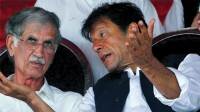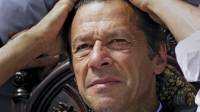Three and a half years after his arrest in Pakistan’s biggest and richest city, Karachi, in a joint raid by the Central Intelligence Agency (CIA) and Pakistan’s Inter-Services Intelligence (ISI), former Taliban second-in-command Mulla Abdul Ghani Biradar was freed on September 21 in response to persistent demands by the Afghan government.
Subsequent reports said he had been shifted to a ‘safe-house’ in Karachi after his release, but it was unclear if this place was being run by some intelligence agency or the Afghan Taliban. The government declined to provide details of the place where he was released and the conditions, if any, attached to it.
There was also no word about Baradar’s future destination and his likely role in the Afghan peace process as wished by President Hamid Karzai’s government. Every effort was made to keep his release secret in the same manner in which he was apprehended in Karachi in February 2010 on the basis of intelligence made available by the American CIA.
The Afghan government made such an issue of Biradar’s release from Pakistani custody that it became a bone of contention between the two countries. Since last year, Afghan officials frequently demanded his release and made comments to the effect that Pakistan’s sincerity to the Afghan peace process would be judged from its decision to free him or continue to keep him imprisoned.
Somehow, Kabul believed that Biradar was taken into custody by the Pakistani authorities to restrain him from holding peace talks with the Afghan government. Kabul also felt that he wasn’t being freed because Islamabad wanted to keep him under its control and prevent him from playing an independent role as a bridge between the Taliban and the Afghan government.
There was also hope in Kabul that Biradar would be willing to cut a deal with Karzai as both belong to the Popalzai Durrani tribe. Following his release, the Afghan government’s expectations and beliefs regarding Biradar’s peacemaking role would be put to test.
It would be a huge disappointment for Kabul if Biradar refuses or is unable to play the role expected of him. In such a case, Kabul could again start blaming Islamabad for not doing enough to bring the Taliban to the negotiating table. The blame-game could resume and contribute to bitterness in the often uneasy relationship between the two countries.
With Biradar’s release, Pakistan has since late 2012 freed 33 Taliban prisoners and could set free some more in the future as part of confidence-building measures to facilitate dialogue between the parties to the Afghan conflict.
All these prisoners weren’t freed on the specific request of the Afghan government, which had given certain names such as that of Biradar, former Taliban justice minister Mulla Nooruddin Turabi, late Maulvi Yunis Khalis’ son Anwarul Haq Mujahid and Taliban movement founder Mulla Muhammad Omar’s aide Abdul Ahad Jehangirwal to Islamabad, so that they could be released and persuaded to join the Afghan peace process.
Except Jehangirwal, the rest have been released but none has yet agreed to travel to Afghanistan and hold peace talks with the Afghan government. Biradar too is likely to refuse to talk to the Afghan government and decline to persuade the Taliban to enter into dialogue with Kabul.
Though the Afghan government welcomed Biradar’s release and President Karzai’s spokesman Aimal Faizi showed confidence it would boost the peace process, Kabul wanted Islamabad to do more. Earlier, some Afghan officials had demanded that Biradar’s release should be coordinated with the Afghan High Peace Council and his whereabouts ought to be known and his movement monitored.
The Afghan High Peace Council head Salahuddin Rabbani and spokesman Mulla Shahzada Shahid expressed confidence that Biradar’s release would benefit the peace process. Certain members of the peace council and some Afghan government officials demanded putting a mechanism in place to keep track of Biradar’s movement so that Kabul could contact him for joining the peace process.
While interacting with top government officials and politicians during a recent visit to Kabul, one kept hearing that Biradar could be sent to Saudi Arabia or Turkey so that his whereabouts are known and he could be easily contacted unlike the other 32 Afghan Taliban leaders who are largely untraceable after being freed by Pakistan government.
However, one also heard critical views in Kabul and a former Taliban commander Akbar Agha, who was arrested in Pakistan and handed over by Islamabad to the Afghan government, accused the Pakistan government of aiming to close down the Taliban office in Qatar and help set up another one in Saudi Arabia or Turkey.
However, this appeared far-fetched as Afghanistan rather than Pakistan has been pushing for closing Taliban office in Qatar and shifting it to Saudi Arabia. Besides, Afghan officials have been putting across the idea of shifting Biradar to Saudi Arabia or Turkey. However, nothing would happen without consent from the Taliban or more specifically their supreme leader Mulla Omar.
Prime Minister’s Advisor on Foreign Affairs and National Security, Sartaj Aziz had earlier made it clear that Biradar would not be handed over to the Afghan government as it would harm instead of facilitating reconciliation in Afghanistan. He was right as the Taliban would see it as a hostile act and in reaction could become even more inflexible with regard to the peace process.
President Karzai has been seeking Islamabad’s assistance in persuading the Afghan Taliban to hold peace talks with his government and he repeated this request during his recent visit to Pakistan.
Confirming that Karzai made such a request, Sartaj Aziz told this writer that Pakistan had promised help, but has been unable to achieve this objective until now.
Pakistan has to do a tough balancing act as the Afghan Taliban leaders are also suspicious of its motives. Some voiced apprehensions about Pakistan’s intentions as they felt it wanted to persuade Biradar to enter into peace talks with the Afghan government bypassing the mainstream Taliban movement led by Mulla Omar, who is known as a hardliner.
Afghan Taliban were confident that Biradar won’t betray Mulla Omar and take a solo flight to negotiate with the Afghan government. They wanted the Pakistan government not to put pressure on Biradar or other Afghan Taliban leaders, whether jailed or free, to do something against their will. In such a situation, any wrong move by Pakistan could erode its credibility with both sides and damage the fragile peace process in Afghanistan.
The writer is a senior journalist based in Peshawar.
























